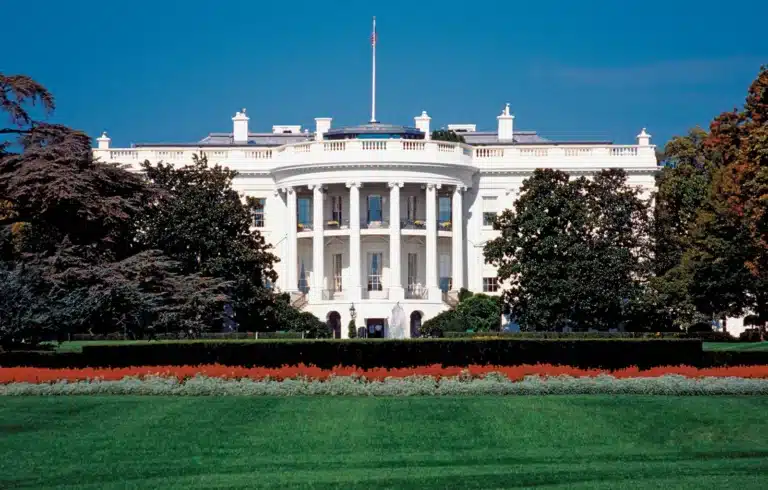Washington / Riyadh – May 18, 2025
In a stunning policy shift, former US President Donald Trump announced the lifting of US sanctions on Syria during his visit to the Middle East this week — a move that has divided Washington, shocked US allies, and reopened global debate over Syria’s future.
The announcement came as a surprise not only to the public but even to parts of the Trump administration. Sources told CNN that although internal discussions had been ongoing, the timing and scope of Trump’s statement went far beyond what officials expected.
A Secret Plan Months in the Making
Trump’s visit to Riyadh included a high-level meeting with Ahmed al-Sharaa, Syria’s new interim president — a former jihadist leader also known as “al-Julani”. This meeting, unimaginable just months ago, marked a symbolic end to over a decade of US policy aimed at isolating Damascus.
According to US sources, Trump had been quietly planning this move with Saudi and Turkish backing for months. Both governments supported lifting sanctions, arguing it would help stabilize Syria and reduce regional extremism.
“The sanctions were crippling at the time,” Trump said in Riyadh.
“But now it’s Syria’s turn to shine.”
Washington Responds: Sanctions Review Underway
Just 24 hours after the announcement, Secretary of State Marco Rubio clarified that the US would not immediately repeal Syria sanctions laws, but would issue waivers through the Treasury Department.
“We’re still far from full repeal,” Rubio said.
“But general licenses are being prepared to allow broad economic activity — especially in sectors like energy, construction, and telecom.”
A complex technical review is now in motion, expected to take several weeks. Legal experts say the administration can issue waivers without needing new laws, but long-term investment will require full repeal, which could face pushback in Congress.
US Allies Divided Over Trump’s Move
The decision has triggered mixed reactions from US allies. While Saudi Arabia and Türkiye celebrated the shift, Israel strongly opposed it.
According to CNN, Israeli Prime Minister Benjamin Netanyahu personally warned Trump during an April meeting in Washington not to ease pressure on Syria, fearing it would encourage groups like Hamas and Hezbollah. Netanyahu reportedly referenced the October 7, 2023 attacks on Israel as a cautionary tale.
“I didn’t ask Israel,” Trump later said bluntly.
“I believed it was the right thing to do.”
Who Is Ahmed al-Sharaa?
Al-Sharaa, who once led jihadist forces in Syria under the name al-Julani, is now Syria’s interim president after the fall of Bashar al-Assad’s regime last December.
His rise to power has deeply divided US officials.
Sebastian Gorka, Trump’s former counterterrorism chief, remains skeptical.
“A jihadist rarely moderates after victory,” Gorka told Politico.
“We need real guarantees — especially for minorities and efforts to crush ISIS.”
Despite his concerns, Gorka praised Trump’s strategy, calling the outreach to Sharaa “genius” if followed with the right conditions.
A New Chapter for Syria?
This diplomatic pivot marks a historic shift in US-Syria relations. If successful, it could:
- Reopen Syria to foreign investment
- Accelerate reconstruction efforts
- Bring millions of refugees back home
- Weaken Iran’s influence in Damascus
- Reposition the US as a power broker in the region
However, critics fear that Sharaa’s past and lack of democratic credentials may lead to long-term instability or a new form of authoritarianism.
Joel Rayburn, once a vocal critic of Sharaa’s rise, has now pledged to support the new policy after being nominated to lead Middle East policy at the State Department.
What’s Next?
The next steps include:
- Finalizing sanctions waivers through the US Treasury
- Coordinating economic zones for investment with Saudi Arabia and Türkiye
- Monitoring Sharaa’s government for compliance on human rights, minority inclusion, and counterterrorism cooperation
The US will also seek European buy-in, though early signals suggest Europe remains cautious, especially after Trump ignored Israel’s concerns.
📌 Follow all updates on Middle East diplomacy and US foreign policy at Riyadh Reviews
🔗 For the full CNN report, visit CNN Politics






